|
There's been much discussion about international trade, particularly NAFTA with trade between the U.S. and Mexico, in the news and social media after President Trump's recent tweet-storm against the "bad deal." But let's cut to the chase: people prosper from trade. Sure, President Trump is correct that the U.S. is running a trade deficit with Mexico, whereby imports exceed exports, this year that looks to surpass the deficit of $71 billion last year (see charts below); but this net trade balance is useless. True prosperity should be measured by the trade value of voluntary exchange of people importing and exporting products. This trade value between Americans and Mexicans was $557.6 billion in 2017 and is already $512.3 billion through just October 2018, meaning this year is likely to be even higher. For another example, Texas has a trade surplus with Mexico, meaning Mexicans purchase more from Texans than Texans do from Mexicans (see figures below). Consider that in 2017 Texas exports to Mexico of $97.7 billion were greater than its exports to the next 10 countries combined. And Texas imports from Mexico of $89.8 B were greater than its exports to the next 5 countries combined. But again, Texas' net trade balance with Mexico of an almost $9 B surplus is useless. True prosperity is the trade value of exports plus imports of $187.5 billion between Texans and Mexicans that year. In other words, through voluntary exchange people satisfy their desires or they wouldn't trade, providing a win-win situation, not a zero-sum game. Comparative advantage discussed by economist David Ricardo in the early 19th Century explained that an individual (or country) will produce whatever she is relatively more productive compared with someone else (another country) and thing. This is similar to competitive advantage whereby an individual is not only more productive but can produce at a lower cost, which may not always be the case with comparative advantage. I explain this and more the Let People Prosper episode 46 above. These concepts work in the real world to provide abundant human flourishing. Those people and countries that practice protectionist measures to limit trade have been poor or made poorer over time--even contributing to the failure of their nation such as in Rome or Germany. What's important here is to be as competitive as possible so that one can continue to benefit from trade by increasing productivity and finding other ways to lower production costs. This can be done through policy such as reducing excessive government spending to lower taxes and cut onerous regulations--both tax and regulatory relief have been successes of the Trump administration. However, tariffs and other trade barriers and excessive government spending by the Trump administration and Congress continue to raise the cost of production and ultimately hurt all Americans as these policy actions reduce their purchasing power. For example, the Tax Foundation notes that the Trump administration’s imposed tariffs have cost Americans $42 billion in higher taxes levied on thousands of products and threatened tariffs could cost them another $129 billion. This could total $171 billion in higher taxes which would be more than the average per year cut in taxes of $150 billion by the 2017 Trump tax cuts. Adam Smith also taught us in the late 18th Century that the extent of the market determines the division of labor and specialization. So, expanding the extent of the market through trade with people in other countries improves both of these measure of worker productivity while holding down the cost of production and therefore prices so that the least among us and everyone else prosper over time. Sure, some sectors, and the workers in them, that don't change course to compete in the expanded markets will be hurt, but people are still better off given more opportunities to work in other sectors and the advantages of an increased standard of living with more quality, affordable products and services. For more on the economics of trade and the benefits of NAFTA and trade in general, please read my paper "People Prosper from Trade: NAFTA and Texas." I also recommend reading papers presented at the Dallas Fed's recent conference on 20 years after NAFTA. The book "Economics In One Lesson" has great stuff on the economics of trade. Another good book that I read recently on trade was "Specialization and Trade" by Arnold Kling--I have a short review of it and other books at my Goodreads page.
In general, we need freer trade to let people prosper. Thanks for reading and sharing with others!
0 Comments
In this Let People Prosper episode 61, let's discuss the U.S. Senate's passage (and soon will be in the House) of a landmark criminal justice reform bill called the First Step Act, the unanimous vote by the Texas Commission on Public School Finance of recommended changes to the system, and the ninth increase by the Federal Reserve of the federal funds rate target to a range of 2.25-2.5%. These are all key issues. But I'm particularly proud of the work that TPPF's Right on Crime team did to make criminal justice reform a priority for years and ultimately by the Trump administration. The First Step Act "provides reentry programming to help reduce recidivism, includes modest sentencing reforms, increases public safety, and gives those incarcerated a second chance once they have paid their debt to society." This is truly a step in the right direction as far too many are locked up for far too long and then return to a life of crime after because of the lack of a job and social normalcy. The Texas Commission on Public School Finance provided a number of recommendations on how to improve student outcomes, how to increase teacher pay, how to more efficiently spend taxpayer money, and ultimately how to provide tax reform. Fortunately, the final version included language similar to TPPF's property tax plan that could provide lower property tax payments for Texans across the state. This is what Texans need and deserve to assure that they have every chance possible without unnecessary government barriers keeping them from reaching their hopes and dreams. Finally, the Federal Reserve raised their overnight lending rate between banks, known as the federal funds rate, to 2.25-2.5%. This is the 9th increase since December 2015 after the Fed had left this rate in a range of 0-0.25% for seven years. The new rate remains near historic lows, as noted in the chart below. While the stock market tanked after this report, the fundamentals of the economy remain relatively strong. One reason for the decline in the stock market today was because the price of credit increased today. This raise reduces the net present value of longer term capital investments and profitability along with the expectation of at least two more raises next year.
My take is that the Fed left rates too low for too long when you compare it with an indicator of a more market-driven, "neutral" rate derived by the Taylor rule. As you'll notice in the figure below, the Taylor rule suggests a neutral rate above 4%, which is almost twice as high as the federal funds rate. By the Fed's distortion of the markets with imposing an ultra-low interest rate policy and multiple rounds of quantitative easing, there are many assets that are bound to be highly inflated and we should expect corrections in these markets as the rate is raised to a more normal level. This isn't necessarily a bad thing as letting the air out of these inflated markets will help steady the markets and ultimately the economy for a firmer foundation for the long run. Interestingly, stocks remain much higher than they were when President Trump took office, which are positive signs of a growing economy as the economic institutions were strengthened from regulatory and tax relief even as burdens were imposed by excessive government spending and trade protectionism. More to do to #letpeopleprosper. In this Let People Prosper episode, let's discuss the recent decision to strike down the Affordable Care Act, AKA "ObamaCare," by a federal district judge in Fort Worth, Texas and note that this is a historic moment along with the economics of it (more here and the YouTube videos below). Here is the press release by the Texas Public Policy Foundation, which led this lawsuit with the stellar work by General Counsel Rob Henneke and 20 states, to note this historic win towards economic freedom, prosperity, and access to affordable quality care for many more people than today. Ultimately, this will likely be a long process until the U.S. Supreme Court hears the case and possibly overturns ObamaCare, allowing for the opportunity to devolve power to the states and ultimately to the people exchanging in a freer market. In the meantime, we should expect no changes to insurance coverage, including pre-existing conditions. Long term, we must move to a healthcare system based on markets that allow prices to work with families, charities, and state governments helping the neediest among us and the disabled. This is a historic time for America! #LetPeopleProsper In this Let People Prosper episode, I am interviewed by Liz Wheeler on her show the Tipping Point on One America News.
We discuss the high cost of deficits and debt and the need for government spending relief along with the latest farm bill which continues the expansion of welfare. In this Let People Prosper episode 58, let's discuss education-related issues in Texas of school finance reform, property tax relief, and the Teacher Retirement System (TRS) of Texas pension solvency.
To sum up, taxpayers have increased funding for public schools for years (see here and here) and now it's time for those elevated current dollars to be spent wisely to the classroom for improved education outcomes. School finance also includes property tax relief which should be accomplished by following the TPPF plan of actually lowering property taxes. And the latest TPPF-Reason Foundation paper highlights the mounting problems with the TRS pension that must be addressed soon before the pocketbooks of teachers and all taxpayers are hit. There's much on the line for education in Texas. Serious discussion about spending taxpayer dollars wisely, lowering property taxes, and assuring the TRS pension system is solvent through reform are essential elements of improving education in the Lone Star State. #LetPeopleProsper In this Let People Prosper episode 57, let's discuss the following: 1) latest news on the stock market volatility from uncertainty regarding international trade and the Federal Reserve actions; 2) my latest co-authored piece at the Dallas Morning News on the economic freedom of Buc-ees and what could be done to increase prosperity; and 3) what's next for Texas' rainy day fund.
In this Let People Prosper episode, let's discuss the large selloff in the stock market as international trade issues along with some signs of slower economic growth and higher interest rates give traders anxiety while incorporating how these influence lower gasoline prices. If you want to learn more, you don't want to miss this full episode. Thanks for watching and sharing with your friends and family! I'm truly blessed to have such amazing support. While there have been some potential good signs on the trade front with a possible agreement between President Trump and President Xi, there continues to be much uncertainty about the actual agreement and the fact that it is only good for 90 days and does little to reduce higher imposed cost of trade between the two countries. In general, this needless trade dispute is far from resolved and has contributed to a steep drop in the stock market today, but there are some promising aspects of the agreement. “Just because the U.S. and China have agreed to call a truce in their trade war doesn’t mean that it’s over: This was a classic exercise in can-kicking,” economist Tyler Cowen explains in Bloomberg Opinion. “Nonetheless, most cans have quite a few kicks in them, and overall this is good news for the global economy. Instead of sweeping everything under the rug, as was the case before Donald Trump took office, America and China have found a new way of addressing conflict by talking openly.” According to the Wall Street Journal, "at the meeting in Argentina, Mr. Trump and his negotiators agreed to suspend a planned Jan. 1 increase in tariffs on $200 billion in Chinese goods to 25%, from 10%, as the two sides negotiate over Chinese economic policies." Overall, tariffs are a destructive and counterproductive trade policy, and both the U.S. and China should work toward reducing them to zero. There’s a lot of work left to do on this deal to ensure that Americans can trade with the Chinese without taxes and uncertainty that will only drive up prices and decrease prosperity. This action in the international trade arena has had costs not only of higher prices for Americans because of raising taxes through tariffs but also in raising the value of the dollar. Of course, the dollar market has many factors, which also include the Federal Reserve's potential actions of continuing to raise their overnight lending rate target. As U.S. interest rates go up compared with other countries, which essentially all developed countries have historically low interest rates, and people want to park their currency in dollars to reduce global risk, the value of the dollar appreciates compared with a host of major currencies, particularly the European euro. When the value of the dollar goes up, the price of oil falls as oil is priced globally in dollars. In other words, a higher valued dollar makes it more expensive for people in other countries to purchase oil so demand falls contributing to a lower price of oil. Also contributing to this is higher inventories of oil from near record levels of production in the U.S. from innovative techniques through fracking. This has contributed to the lowest level of gasoline prices this year, translating "to savings of about $200 million a day for Americans, said Patrick DeHaan, head of petroleum analysis for GasBuddy. DeHaan predicted that gasoline prices will fall further in coming days, but how long that will last is unclear." Given much of my academic research is in the oil and gas markets, there is much to the story of how the oil market works based on supply, global demand, and precautionary demand primarily driven by geopolitical issues. Supply is increasing, global demand is waning, and precautionary demand is heightened by the previous two factors outweigh this push upward in price. Considering that gasoline is a byproduct of oil, there is, on average, about a 2% increase in the retail price of gasoline for every 10% increase in the price of oil, and a symmetric response for a decline in the oil price over time. Ultimately, imposing tariffs on other countries naturally leads them to do the same to us. And families pay the cost. Instead of resorting to flawed mercantilist trade policy, America should lead the way in promoting free trade, which history shows supports freedom and human flourishing. This should also stabilize the stock market from such wild swings driven by policy uncertainty on a the trade and interest rate fronts. Gaining trust in money issues must also come in the form of reining in bloated federal government spending of taxpayer dollars today and in the future from rising debt. Achieving freer trade, raising interest rates to a more normal level, and reining in government spending would put the U.S. a sounder foundation for economic growth contributing to more job creation and economic opportunity for more people to prosper. #LetPeopleProsper |
Vance Ginn, Ph.D.
|
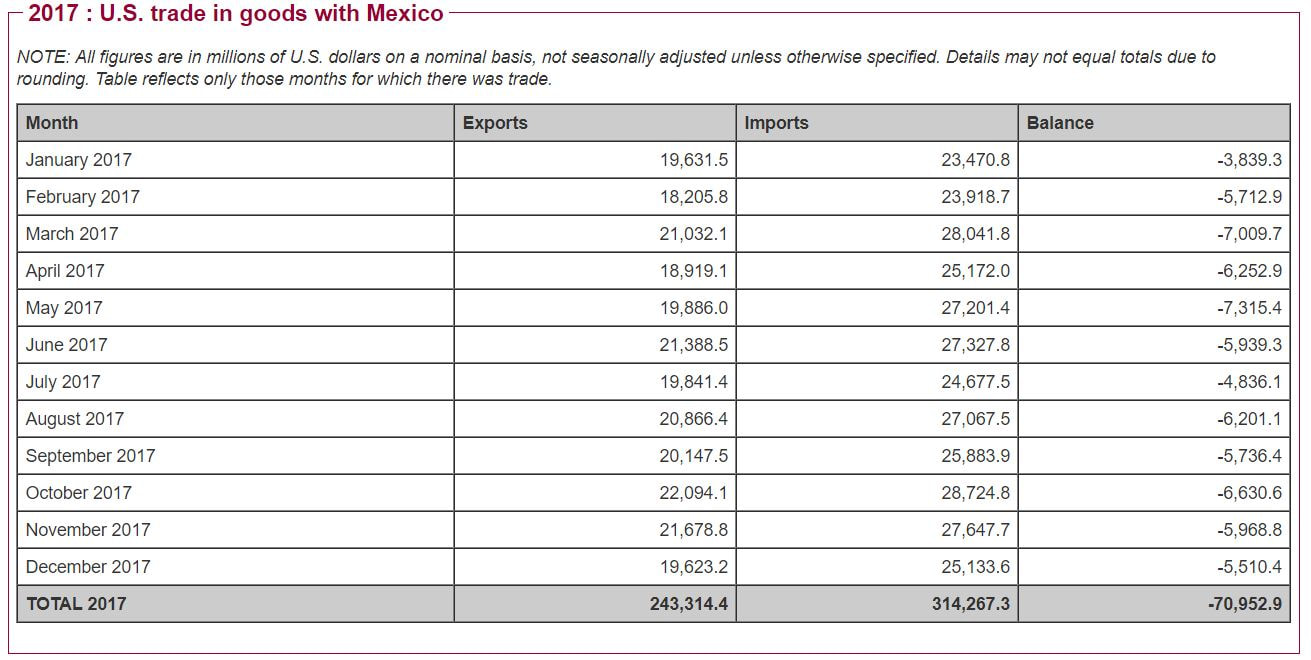
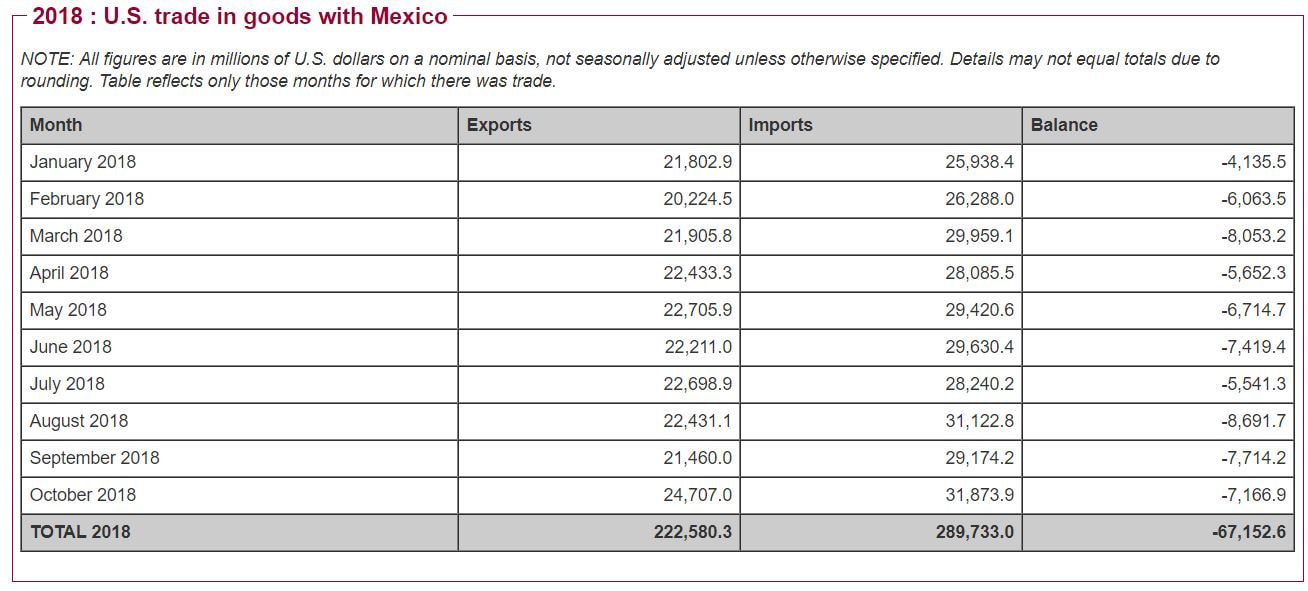
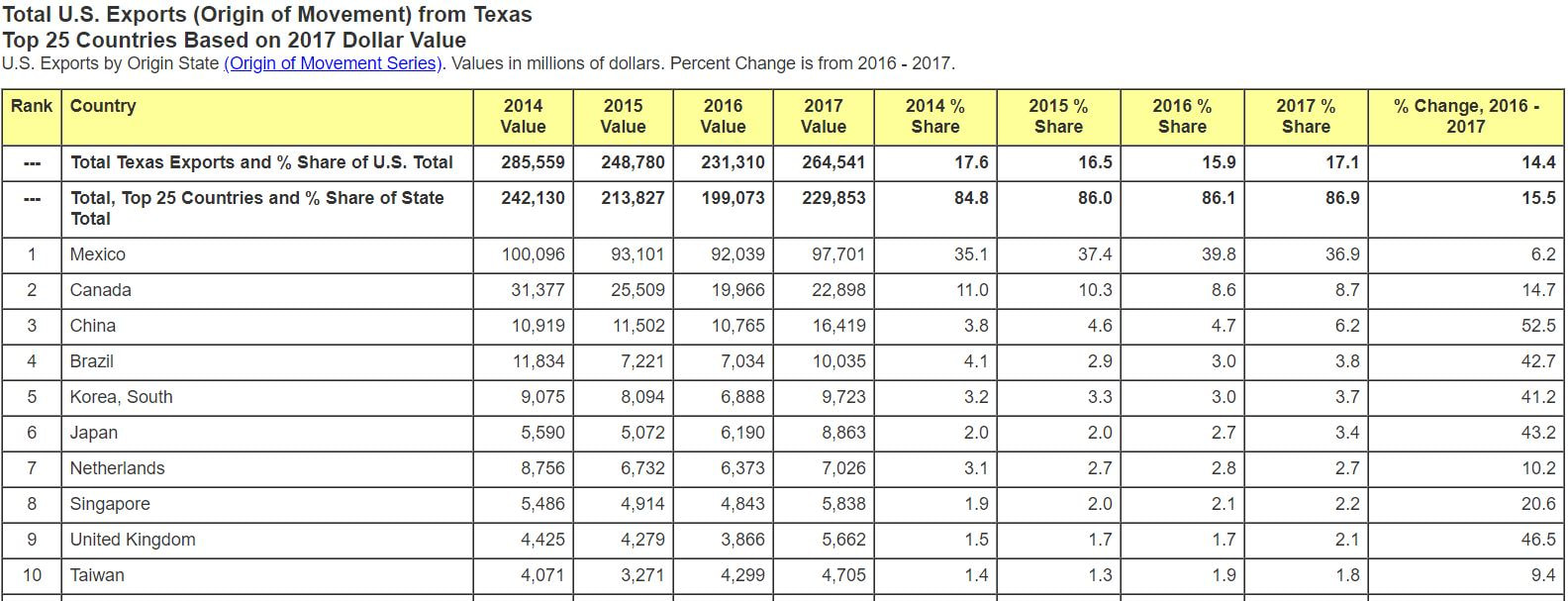
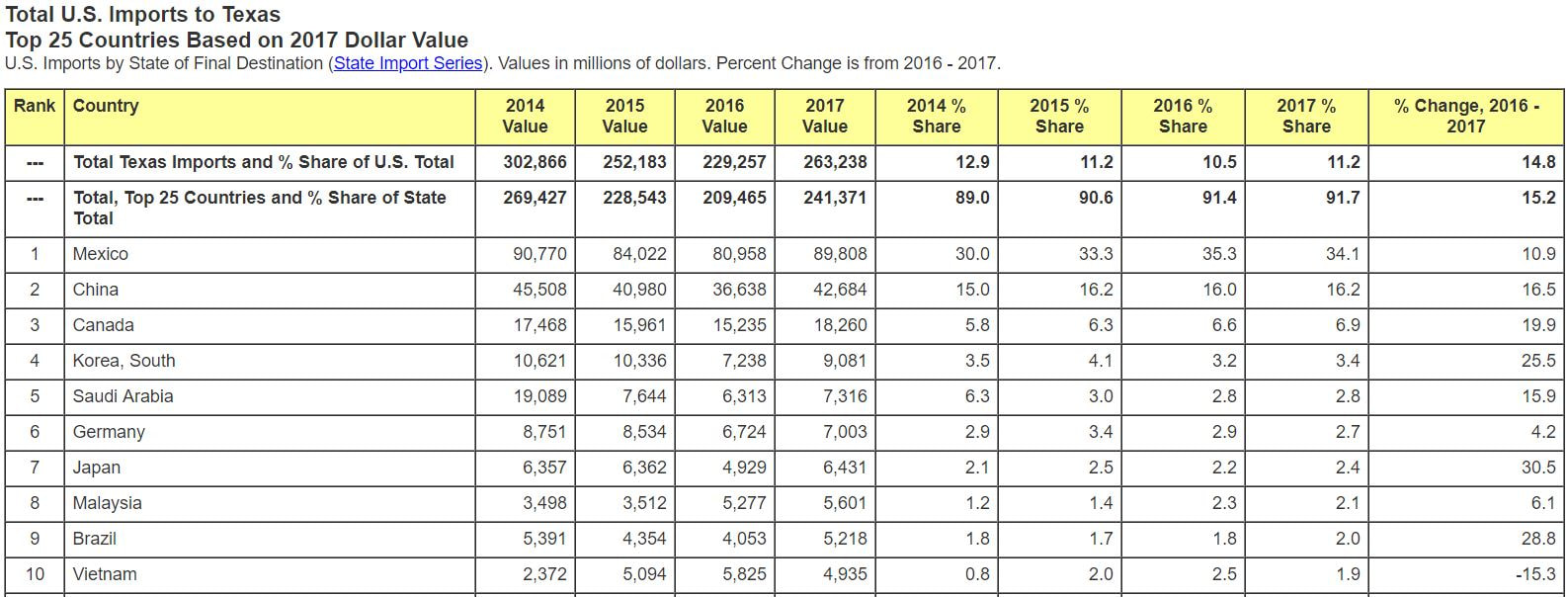
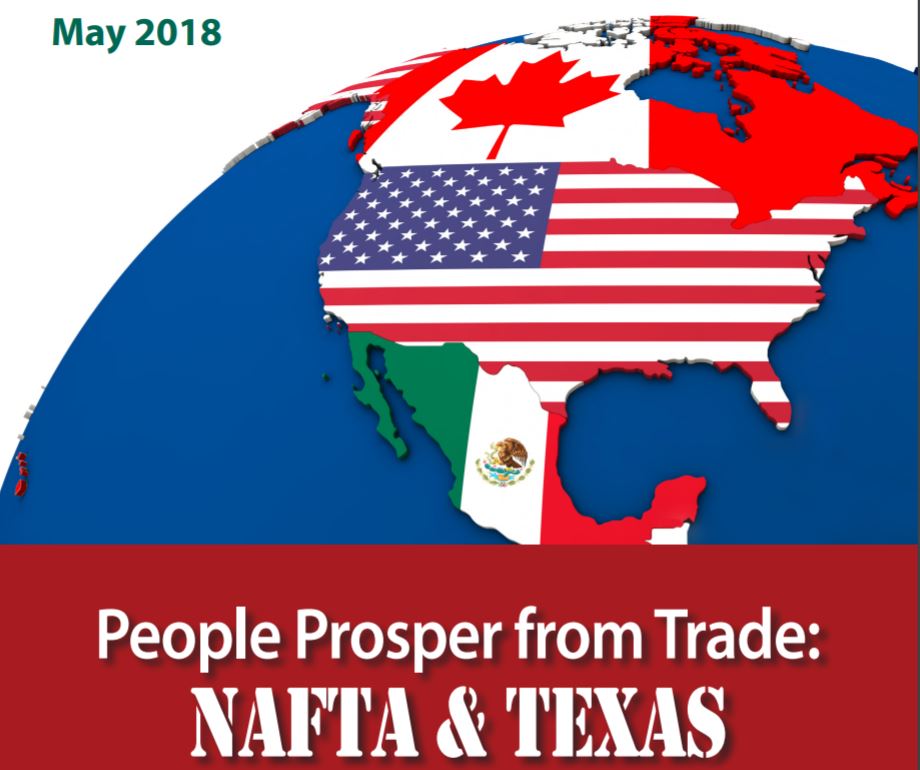
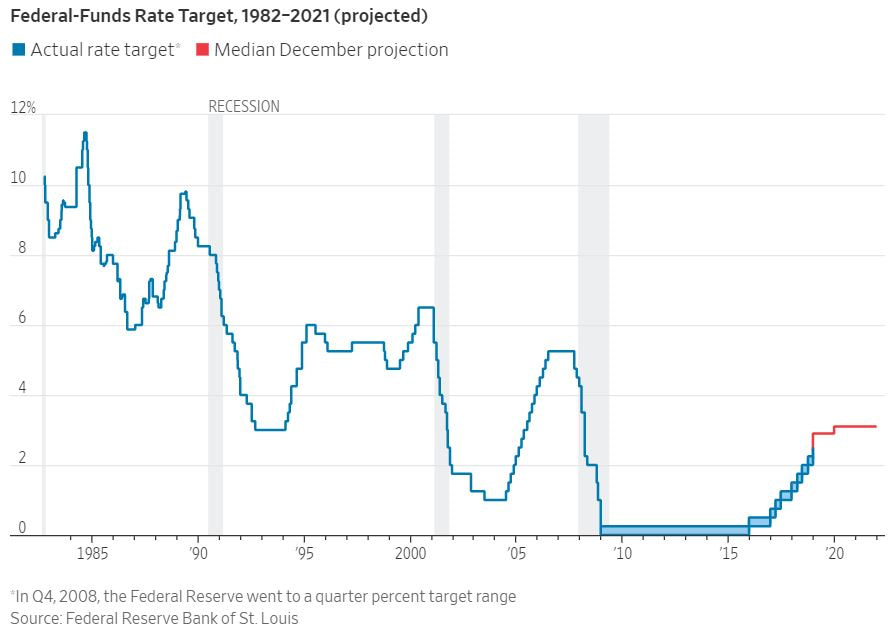
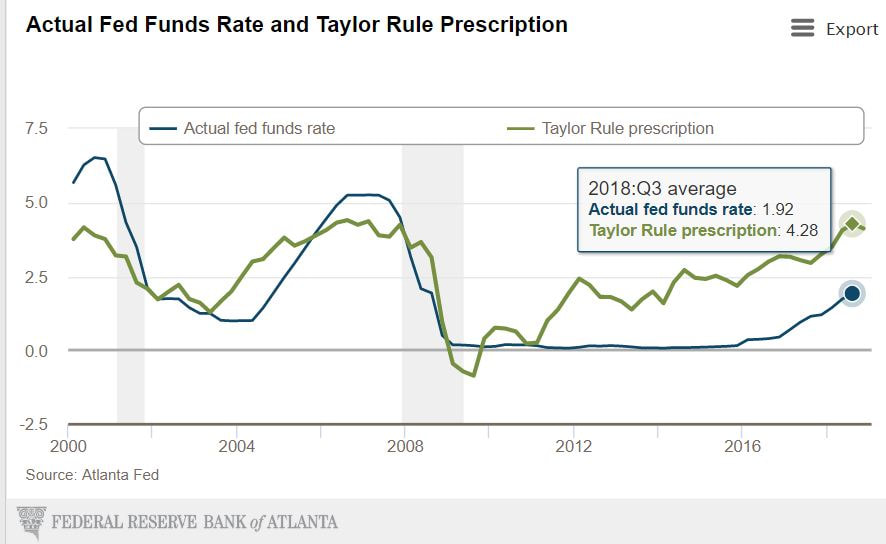

 RSS Feed
RSS Feed